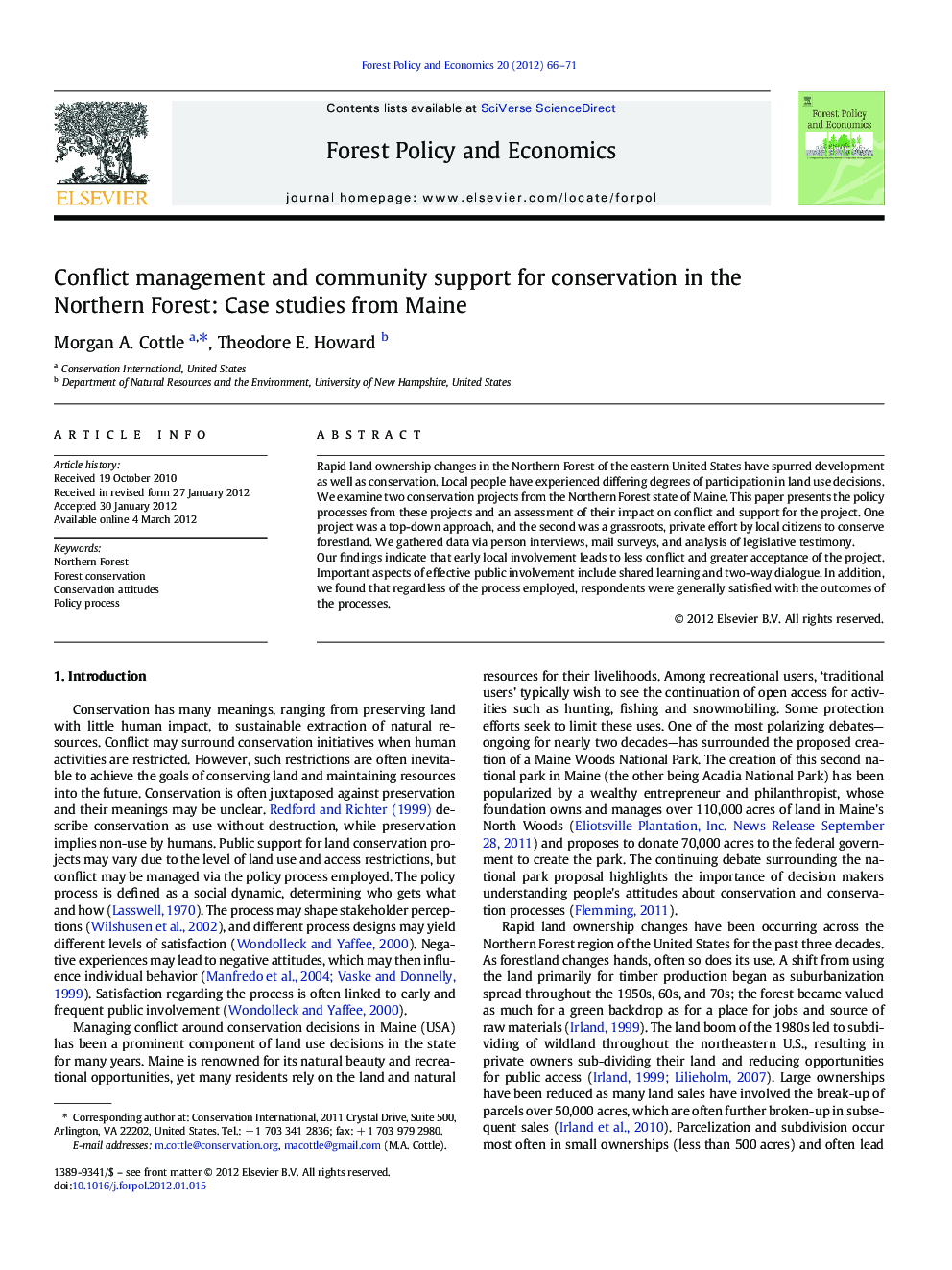| Article ID | Journal | Published Year | Pages | File Type |
|---|---|---|---|---|
| 91129 | Forest Policy and Economics | 2012 | 6 Pages |
Rapid land ownership changes in the Northern Forest of the eastern United States have spurred development as well as conservation. Local people have experienced differing degrees of participation in land use decisions. We examine two conservation projects from the Northern Forest state of Maine. This paper presents the policy processes from these projects and an assessment of their impact on conflict and support for the project. One project was a top-down approach, and the second was a grassroots, private effort by local citizens to conserve forestland. We gathered data via person interviews, mail surveys, and analysis of legislative testimony.Our findings indicate that early local involvement leads to less conflict and greater acceptance of the project. Important aspects of effective public involvement include shared learning and two-way dialogue. In addition, we found that regardless of the process employed, respondents were generally satisfied with the outcomes of the processes.
► Analysis of two high profile conservation projects in Maine. ► Mutual learning and two-way dialogue lead to more supported outcomes and processes. ► Identifying goals with local people at the earliest stages is a first step in creating support for a project.
